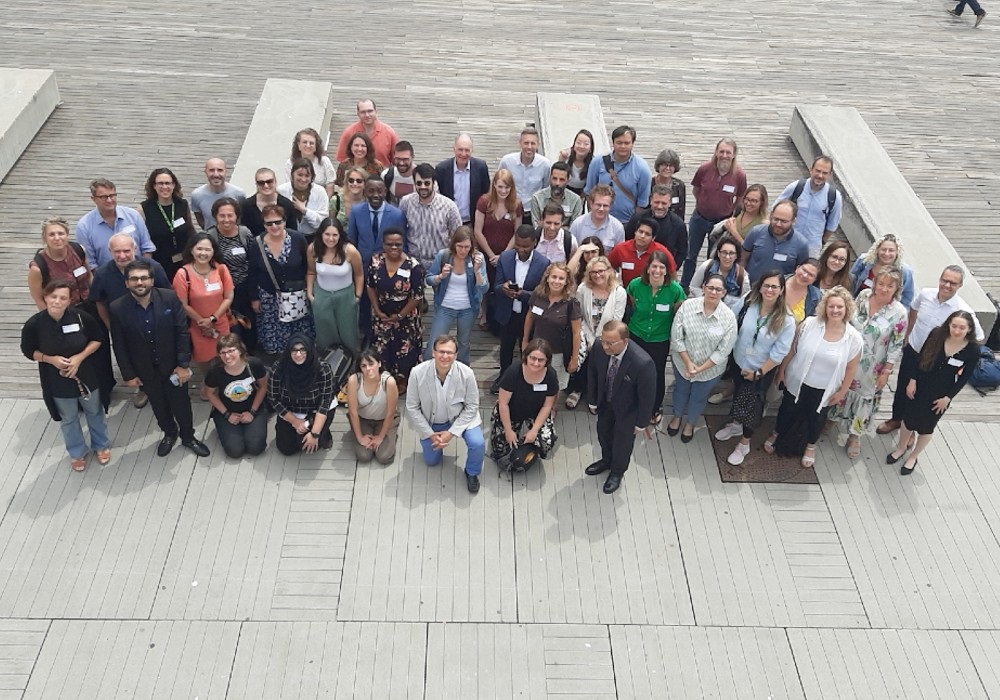GCAT participates in the third END-VOC General Assembly in Barcelona

Sun and sea were the background for the third General Assembly of the END-VOC Consortium, held on 7 and 8 June and hosted by the Barcelona Institute for Global Health (ISGlobal). For many of the more than 50 consortium members who travelled to Barcelona, it was their first face-to-face meeting, and an excellent opportunity to discuss progress made and plan future actions. Germans Trias i Pujol Research Institute (IGTP), who is leading the GCAT project and collaborating in several of the project's work packages, was one of the partners who participated in this meeting.
Progress made
In his welcome address, project leader Ibrahim Abubakar encouraged members to not only work on the planned deliverables of the project, but also to "think outside the box to identify new questions and synergies at a time when our knowledge of COVID-19 has evolved so much".
During the first part of the meeting, each work package briefly reviewed the progress made on each task, and the pending actions and challenges for the next months. Examples of progress made and ongoing work include: the bioinformatics guidelines for SARS-CoV-2 (WP3), a theoretical framework to predict immunological or epidemiological niches for COVID-19 variants or other zoonotic viruses (WP4), the establishment of assays to analyse humoral and cellular immunity to Spike antigens in the different cohorts (WP5), a clinical trial template and a data collection platform for future pandemics, in collaboration with the WHO (WP6), co-participatory activities with long Covid patients (WP7), mapping of regulatory frameworks, communication strategies and public perceptions on pandemic preparedness and vaccines (WP8), proposal of a generic governance structure for European consortia (WP9), and regular posts for the general audience on the END-VOC website (WP10). The challenges of data sharing within the consortium (WP2) were also discussed and a solution was found.
Round tables, new ideas
But the really interesting part came with the five round tables (Long Covid; Data curation, harmonisation and biobanking; Pathogenicity, outcomes and treatment; Genomics, transmission, immunity and vaccines; Pandemic preparedness), which used polls, quizzes, post-its or people arranged into small groups to encourage discussion and interaction across all work packages and consortium members.
"We had several excellent ideas for sub-projects coming out from these round tables, and we now need to sit down and prioritise actions," explains Prof. Abubakar
The five members of the Independent Advisory Board, who attended the whole meeting, pointed to the incredible diversity and heterogeneity of cohorts as one of the main strengths of the project, and provided valuable advice on how to move forward.
A high-level symposium
The General Assembly was preceded by a scientific symposium on 6 June, where high-level panelists and invited speakers, including people from WHO, discussed surveillance of COVID-19 variants and efforts to improve global pandemic preparedness and response. Around 60 people from around the world followed the symposium online.
